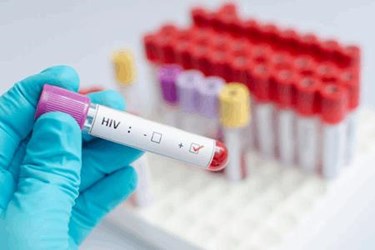Janssen's Encouraging HIV Vaccine Trial Results

By Ed Miseta, Chief Editor, Clinical Leader

Johnson & Johnson announced encouraging clinical data from a first-in-human study for an investigational HIV-1 vaccine regimen. The vaccine regimen, in development at Janssen Pharmaceutical Companies, appeared to be well-tolerated by subjects and elicited HIV-1 antibody responses in 100 percent of the participants. The APPROACH study tested the vaccine on 393 healthy volunteers.
According to Dan Barouch, professor at Harvard Medical School and director of the Center for Virology and Vaccine Research at Beth Israel Deaconess Medical Center, finding a preventative vaccine has proven to be one of the biggest scientific challenges in the 35-year history of the quest to end the HIV pandemic. Barouch, a key collaborator in the APPROACH study, notes the promising early-stage results suggest these vaccines should be further evaluated for the potential ability to end the disease.
Even with treatments on the market, HIV remains one of the greatest global health threats of our time. It is estimated that 37 million people are living with the disease and nearly 2 million more become infected every year. An effective vaccine has thus far proved to be elusive due to the unique properties of the disease, including its genetic diversity and ability to mutate rapidly.
 Maria Pau, senior director, early compound development team leader, infectious diseases and vaccines at Janssen, notes this is a mosaic-based vaccine, meaning it contains immunogens created using genes from different HIV subtypes. The immunogens are delivered via viral vectors, such as Janssen’s AdVac® technology. The viral vectors are combined with other components, such as soluble proteins, to form mosaic-based prime-boost vaccine regimens that prime and then boost the human immune system. The aim is to produce stronger and longer-lasting immunity to HIV.
Maria Pau, senior director, early compound development team leader, infectious diseases and vaccines at Janssen, notes this is a mosaic-based vaccine, meaning it contains immunogens created using genes from different HIV subtypes. The immunogens are delivered via viral vectors, such as Janssen’s AdVac® technology. The viral vectors are combined with other components, such as soluble proteins, to form mosaic-based prime-boost vaccine regimens that prime and then boost the human immune system. The aim is to produce stronger and longer-lasting immunity to HIV.
100 Percent Positive Response Rate
The Phase 1/2a study was a multi-center, randomized, placebo-controlled study of 393 healthy adults at multiple sites in the U.S., Thailand, South Africa, Rwanda, and Uganda. The trial examined safety, tolerability, and immunogenicity in study subjects. At this time all vaccination schedules have been completed and a 12-month follow-up of subjects is underway. The results show all vaccine regimens appeared to be well-tolerated. Pain at the injection site, headache, and fatigue were the most commonly reported adverse events. After the third vaccination, the most active vaccine regimens demonstrated antibody responses in 100 percent of study participants.
According to Pau, the combination of products used in this trial came from many years of clinical experience. The vaccines used in this study consisted of two prime doses of a mosaic viral vector (Ad26.Mos.HIV) and two boosts of either Ad26.Mos.HIV, MVA-Mosaic, and/or different doses of the soluble protein Clade C gp140 adjuvanted with aluminum phosphate.
“We wanted to develop a vaccine that could be used globally to prevent HIV infection,” says Pau. “The combination products were selected to induce immune responses against multiple variants of HIV. HIV has an extraordinary genetic diversity. Therefore, for this study, we felt going with a mosaic-based regiment would yield the best possibility of success. The mosaic was derived from looking at the different and multiple genes of the variants of HIV seen in previous trials. Another component included in this vaccine was the boosts that included soluble proteins. Those soluble proteins also came from years of laboratory research. We were able to prove these components boosted the immunogenicity of the vaccine.”
The study had eight different arms, including a placebo control arm. There were at least 50 subjects per regimen. A lead regimen was later selected from among the regimens used in the study. Tolerability in this study was a primary endpoint. Additionally, the treatment had to produce the desired immune responses. Those immune responses are measured via a blood test, administered at different times, to look at antibody responses and blood cells.
The next step will be a larger proof-of-concept (Phase 2b) study that is expected to get underway in late 2017/early 2018. That study will evaluate the lead regimen on healthy volunteers who will be monitored for a decrease in the rate of HIV infection.
Find Healthy Subjects
This trial was different from most in that in Janssen was testing a vaccine. Therefore, the company had to recruit healthy subjects, rather than patients infected with the HIV virus. Still, that did not make the subject recruitment process easier. There were still inclusion and exclusion criteria that had to be met. In fact, that desire to have only the healthiest of volunteers led to what Pau describes as “many, many inclusion and exclusion criteria.”
Sites in the participating countries assisted with the subject selection process. For the sites in South Africa, Rwanda, and Uganda, Janssen selected locations that had capabilities developed over a number of years. Those capabilities, including subject recruitment and trial conduct, were in part developed with help from study partners including the National Institutes of Health (NIH), the International AIDS Vaccine Initiative (IAVI), and the HIV Vaccine Trials Network (HVTN). Pau notes these sites are efficient and expedient. Several of the sites worked with Janssen in the past when the company was testing prototype vaccines. They use good clinical practices (GCP), and Pau states these clinics are as good as any operating in western countries, including the U.S. Some are even specifically dedicated to HIV studies.
While the clinics served a vital role, so did the partnerships Janssen has in place. “We decided to team up with multiple collaborators worldwide in the HIV field,” adds Pau. “These partners brought different capabilities to the study and were instrumental in connecting us with the clinical networks, which were so vital in helping us to carry out the study.”
The APPROACH study was sponsored by Janssen with the support of those partners. The organizations include the Beth Israel Deaconess Medical Center, the U.S. Military HIV Research Program with the Henry M. Jackson Foundation for the Advancement of Military Medicine, The National Institute of Allergy and Infectious Diseases (part of the NIH), the Ragon Institute, IAVI, and the HVTN.
